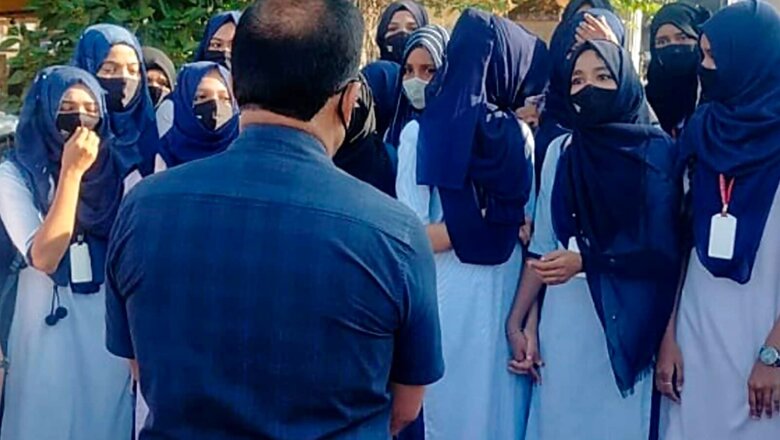
views
Karnataka is witnessing controversy over the Muslim tradition of wearing a hijab that has eventually led to the closure of schools and colleges for three days from Wednesday. The event has unfolded over the past few weeks starting December 31 when six girls wearing the headcover protested outside the Women’s Government Pre-University (PU) College in Udupi after the institute denied them entry inside the classroom.
The issue intensified over the weeks and protests for and against the hijab were held in different parts of Karnataka.
Hijab is a head-covering scarf that some Muslim women wear in public. It is required by law in some parts of the world like Iran and Afghanistan, while wearing it in public is not required in Saudi Arabia. A few nations in Europe and the Muslim world have passed laws banning some or all types of hijab in public.
The girls, who were barred by the Udupi PU College, have moved the Karnataka High Court with a prayer to allow the right to wear a hijab, or headscarf, inside the classroom.
So, what does the Constitution say about religious practices?
Subject to public order, morality and health and to the other provisions, all persons are equally entitled to freedom of conscience and the right freely to profess, practise and propagate religion under Article 25 in the Constitution.
Also, Article 21 gives protection of life and personal liberty saying no person shall be deprived of his life or personal liberty except according to procedure established by law.
Article 19(1)(a) of the Constitution guarantees freedom of speech and expression to Indian citizens.
Further, Article 14 says the State shall not deny to any person equality before the law or equal protection of the laws within the territory of India, and according to Article 15, the State shall not discriminate against any citizen on grounds only of religion, race, caste, sex, place of birth or any of them. However, time and again the courts have had to interfere over conflicts due to religious practices.
In July 2015, the Kerala High Court allowed two Muslim girls to wear full-sleeved clothes and headscarves for the All India Pre-Medical Test (AIPMT) but on the condition that the invigilators can frisk them in case of any suspicion.
However, days later the Supreme Court refused to allow aspirants appearing for the AIPMT to wear a hijab, saying that “your faith won’t disappear” if it is not worn on a particular day.
In May 2017, the Kerala High Court allowed female Muslim candidates to wear the hijab while appearing for the entrance examination to be conducted by the All India Institute of Medical Sciences (AIIMS). The court, however, also made it clear the students wearing headscarves should be present at the examination venue an hour before the scheduled time. If required, a woman invigilator can frisk them, the court said.
Not just hijab, but there were also other cases when the courts had to interfere over freedom of choice and religion to the people.
In December 2018, the Kerala High Court ruled that a private school cannot be asked to allow students to wear uniform as per their religious beliefs.
In August 1986, a Supreme Court bench of Justices O Chinnappa Reddy and MM Dutt had granted protection to three children of the Jehovah’s Witness sect who didn’t join in the singing of the national anthem at their school. The court held that forcing the children to sing the anthem violated their fundamental right to religion.
In August 2015, a turbaned Sikh was barred from participating in a sporting event without a helmet or protective gear.
He moved the Supreme Court, which eventually said that he cannot claim discrimination or interference with his religious rights.
Read all the Latest India News here











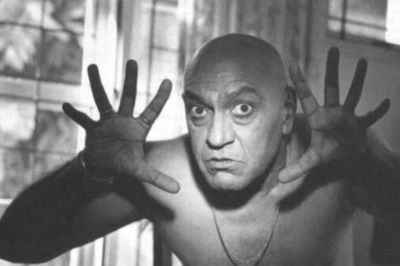


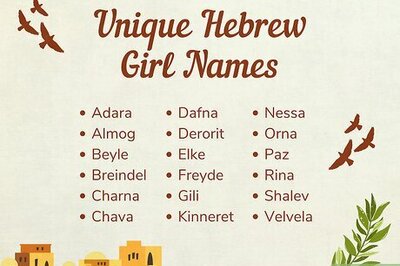

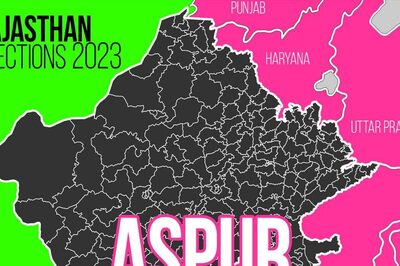

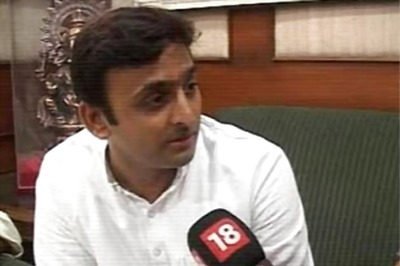

Comments
0 comment